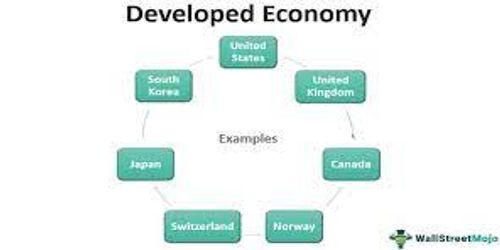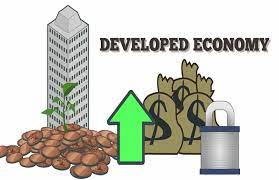What Is a Developed Economy?: An Extensive Overview
Nov 07, 2023 By Susan Kelly
Introduction
What Is a Developed Economy? A country with moderate security and economic growth typically has a well-developed economy. The standard criteria for evaluating a nation's development include per capita income or per capita gross domestic product, the rate of industrialization, the quality of life, and the extent of technology infrastructure. It is possible to gauge an economy's growth rate by looking at non-economic variables such as the Human Development Index (HDI), which sums up data on a country's literacy, education, and health into a single number.
What Does It Mean to Be "Developed"?
It is difficult to define what constitutes a "developed" economy and instead relies on various factors. In the future, we'll use an economy to represent the economy. The accurate measure of a country's progress is determined by factors unrelated to its economic progress per se.
Criteria
The gross domestic product (GDP), the degree of industrialization, the general standard of living, and the extent of infrastructure are some of the most commonly used metrics for determining a country's development status. The Human Development Index (HDI), which measures progress in literacy, education, and health, has become increasingly important in assessing a country's or an economy's level of development in recent years.
Consumption power and gross domestic product (GDP)
Another problem with using GDP as a measure of progress is that it compares the GDP per capita of countries. It's all because of one thing: in the United States or Europe, for example, the US dollar doesn't buy the same goods and services as it does in Africa or Asia. Many goods and services are more expensive in a developing country than in a developed one. Economists can compare global GDP using purchasing power parity (PPP) dollars. These are the dollars, and they've been tinkered with to account for regional differences in purchasing power.
The Birth of a Rich Country
According to the World Institute for Development Economics Research (WIDER), As a developing country progresses, four fundamental pillars of society are essential to its success. These are the four pillars. Productivity rises in the economy. Reflects the will of the people. Equal opportunities and chances for everyone. Effective and efficient implementation of management Developed economies have a few common traits.
Affluent Individuals
According to average per capita earnings, they make a lot of money. The definition of "high income" varies from one institution to the next. The World Bank defines high-income status as a household income of $13,376. A country is considered developed if its per capita income exceeds this threshold and ranks highly in other categories.
Rank in the Top 10% of Humans
The citizens of this country will not only be wealthy, but they will also have a higher standard of living, as evidenced by various indicators, such as literacy rates, life expectancy, infant mortality rates, and easy access to health services. So the UN created and published the Human Development Index (HDI) (HDI). The United Nations publishes the index every few years to measure the changes in living standards in different countries worldwide.
Advancements in Science and Technology
As a result of their highly educated workforce and a risk-taking mentality ingrained in their culture, they are technologically more advanced than other countries. These individuals are receptive to new ideas and actively involved in research into cutting-edge technologies in various fields. The policy's primary objective is to promote economic growth.
Motivations for growth
Research in the field of developmental economics aims to identify the underlying causes of poverty and devise strategies to raise the average annual income per person. It is possible to design growth-enhancing strategies (for example, by analyzing the experience of other developing nations) without first understanding the underlying causes of underdevelopment, even though these two issues are interconnected.
Consequences of unhappiness
Dissatisfaction in the developing and underdeveloped world has fluctuated and diminished, but it has not entirely disappeared. Because of the disparity in income levels, as well as their feelings of resentment toward their colonial past and complex efforts to improve their national status and attain equality with developed nations, a sense of anger and discontent arises.
Conclusion
With regards to economic development and security, developed economies are considered. The income per capita, or gross domestic product per capita, is a standard measure. Even if a country's GDP per capita is high, it won't qualify as an advanced economy if it has poor infrastructure and wide disparities in wealth. Other non-economic factors, such as the human development index, can also be considered. In developing economies, globalization is frequently used to help them rise to higher income and living standards.

How to Get an Offer Accepted on a House with Multiple Offers

What You Should Know About Mistakes In Debt Consolidation

BECU rolls out same-day payments

Questions with Amex Digital Labs’ VP and head of partnerships

Should You Live with Parents to Save Money?

How to Hire a Retirement Advisor? What You Need To Know

Is the Amex Gold Card Worth It? My Six-Month Review

Top 8 Social Media Marketing Agencies to Elevate Your Small Business

What Is a Developed Economy?: An Extensive Overview



